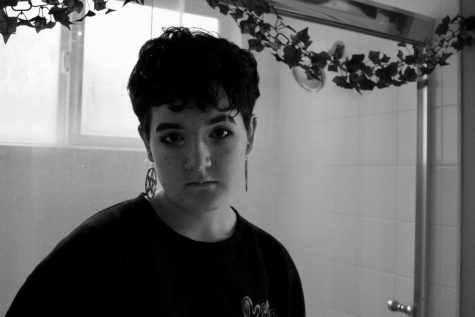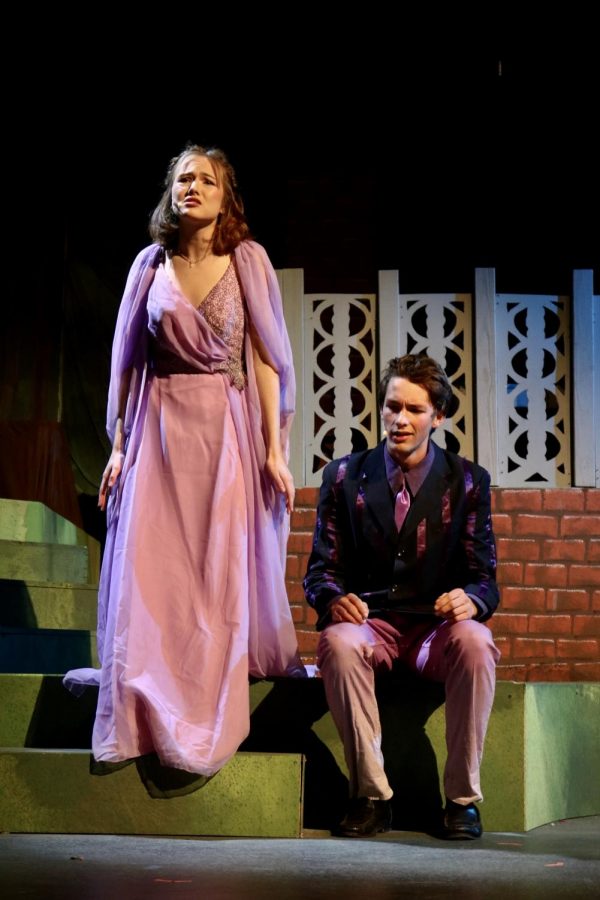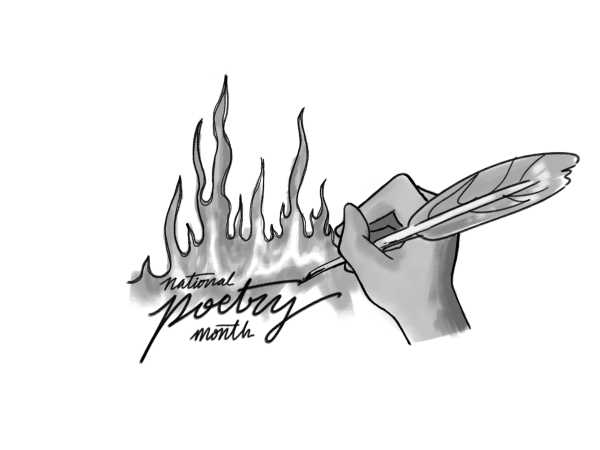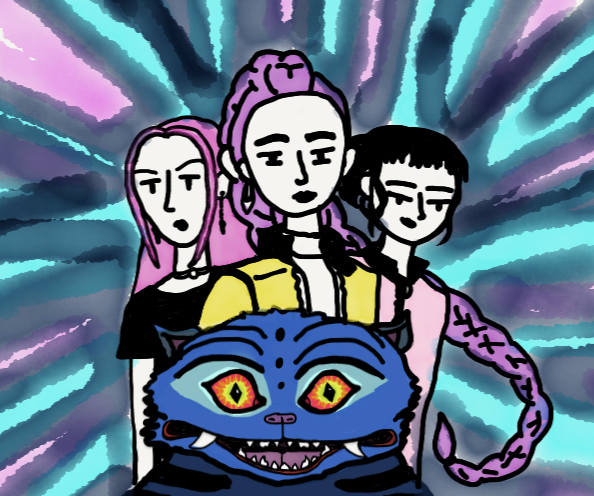Friday the 13th and the Midsummer Night’s Dream mishap
Lucie Higuera as Hermia acts alongside her counterpart Shawn Clayton as Lysander.
Friday the 13th — a day in which superstitions run wild and everything can seem a bit “off.” For many, Friday the 13th is a day of extra caution and strange, unexplainable mishaps. But has this mysterious curse struck the CHS theater department?
On Dec. 12, 13, and 14, CHS Advanced Theater Production put on a production of Shakespeare’s play “A Midsummer Night’s Dream.” Opening night went wonderfully, with an effortless array of fire special effects, splendid acting, and drama as mystical enchantments were cast and love turned to battle. However, on Friday the 13th, things happened a bit differently. It was a seemingly smooth performance, some even say it was one of CHS’s best, however, underneath lies more than meets the audience’s eye.
“A Midsummer Night’s Dream” opens with Theseus and Hippolyta planning their wedding, which is set to take place in four days. Egeus then enters with his daughter, Hermia, and her two suitors, Lysander and Demetrius. Hermia is deeply love with Lysander, but her father wishes for her to marry Demetrius, declaring Hermia will meet her death if she refuses. As a result, Lysander and Hermia plan to escape to Athens. The audience is then introduced to Helena, pining desperately after Demetrius, as well as the fairies. As the fairies are on stage in the CHS production, they perform many magical tricks involving fire. These special effects are made possible by the use of flash paper. However, unlike the other two nights, on Friday the 13th, slight chaos arose in the performance of these tricks.
“The flash paper that was supposed to go out, [but instead was] dropped onto [the] actual set, which started what could be considered a small brush fire,” lead actor in the production and junior Kevin Hammill said. The fairies quickly put out the fire, staying within character. This mishap kicked off a chain of strange events on stage that night. This begs the question — coincidence, or supernatural?
The plot of “A Midsummer Night’s Dream” twists and thickens as the fairies, specifically Puck the jester, casts a love spell of sorts, using a mystical plant, on Lysander while he is asleep, making him fall in love with the first person he sees. Thus, Lysander is supposed to awaken to meet the gaze of Helena, and instantly fall madly in love with her, complicating the plot.
However, as Lysander, played by CHS senior Shawn Clayton, awoke, the scene did not exactly go as planned. As Hermia and Lysander laid asleep on stage, Puck the jester cast the enchantment. However, as Clayton was supposed to wake up to see Helena, silence settled in on stage. She had not yet appeared. As the silence settled in deeper, Clayton knew it was his responsibility to improvise something on the spot to save the scene. Knowing he could not wake up to see another character, Clayton decided to wake up and improvise a Shakespearean monologue, all within Shakespeare’s signature rhythm of iambic pentameter.
“I make up Shakespeare on my own just for fun; I’ve done it enough and it takes practice,” Clayton said. “So when no one came on, I thought ‘I’m an experienced actor, I’m on ComedySportz, I’ve done improv before — this is my job.’ I awoke and began to discuss how Lysander felt. We’re so into the characters we play that their mindset is our mindset. So it’s easy to be able to talk about what he’s feeling at the moment because you’re already kind of thinking about what he’s feeling when you’re playing his role.”
After Clayton effortlessly gave his monologue, he fell back into a deep sleep, hoping for his fellow actors to join him onstage. But as more seconds of silence dragged on, it was clear something had gone wrong behind the scenes. Realizing this, Clayton arose once again, only to give another beautiful Shakespearean monologue, relating to his feelings of distress and fear in the play. Clayton then fell back asleep, in hopes again of hearing the footsteps of his love interest joining him on stage. Yet the third strike hit as silence glossed over the stage once again. So, for the third time, Clayton arose and began his final monologue, figuring that Shakespearian writing often uses rules of three, so the audience may see it as intentional for Lysander to awaken in distress three times. “As I awake, last time of three…” Clayton began, combing his hands through his hair in distraught, until he finally saw his fellow actors in the wings backstage. Clayton wrapped up his final scene, with an internal sense of relief, as he knew he had pulled off the improv. For the final time, Clayton fell into a deep slumber, as his fellow actors joined him on stage and the rehearsed scene began.
“I was kinda shaky on stage, but I was definitely enjoying it,” Clayton said. “It was a fun moment for me, whereas other people seemed more stressed out by the experience. It was a new acting challenge I hadn’t yet had to face, and to be able to pull it off was also super fun.”
From breaking legs to wearing opposite socks, actors are notoriously superstitious. Whether or not these mishaps were a result of the mysterious date, Friday the 13th, is up for question. On the other hand, not up for debate was how beautiful CHS’s production of “A Midsummer Night’s Dream” was, despite all the unexpected hurdles!
Hello there! Our goal is to provide relavent, engaging journalism for readers of all ages. Your donation will support the student journalists of the Wolfpacket at Claremont High School, and will allow us to purchase equipment, print our monthly issues, and enter in journalism competitions. We appreciate your consideration!

The 2020-2021 school year marks Ady Bolinger’s second year on the Wolfpacket staff. Bolinger, a junior at Claremont High School, holds an editorial position...

Kay Oken has been on the staff of the Wolfpacket since their freshman year. Over the years, they have been a reporter, photographer, Photo Editor, and...












